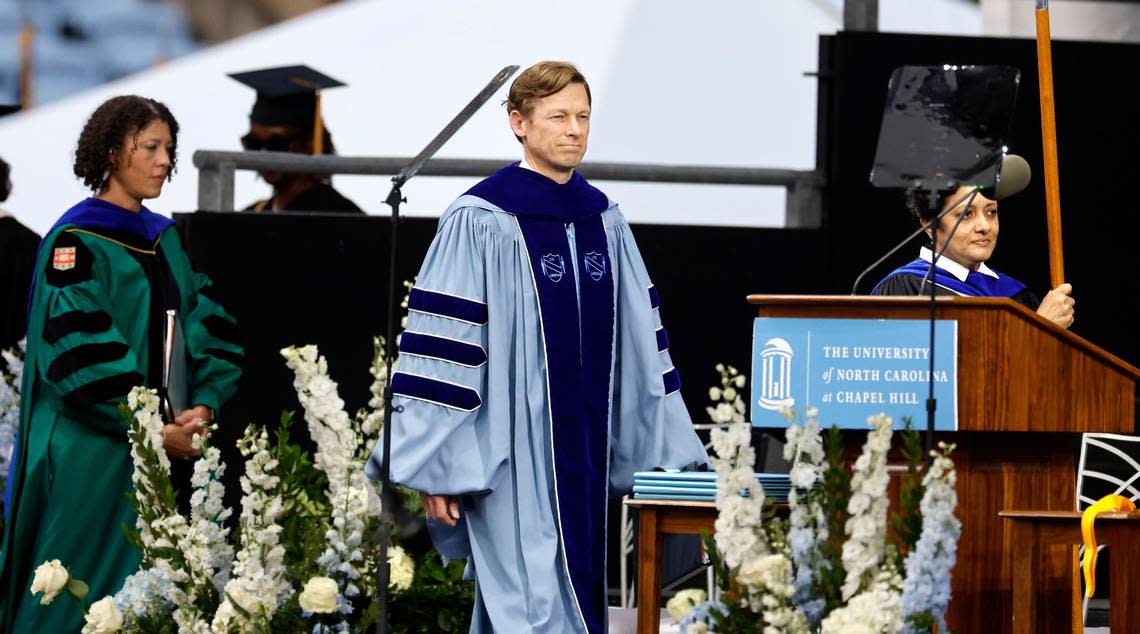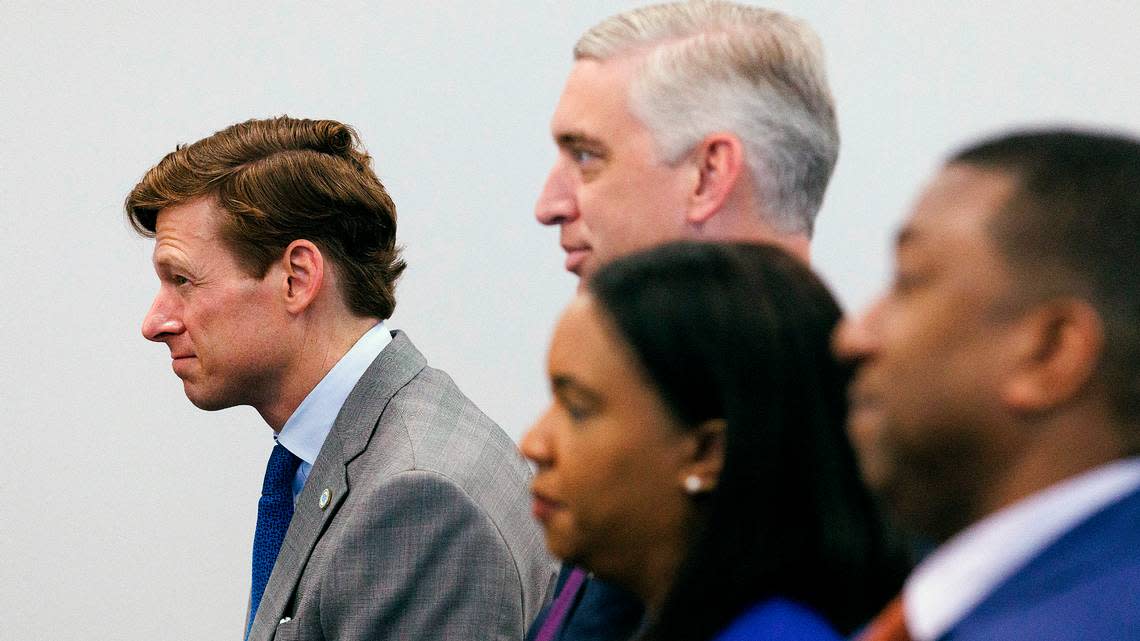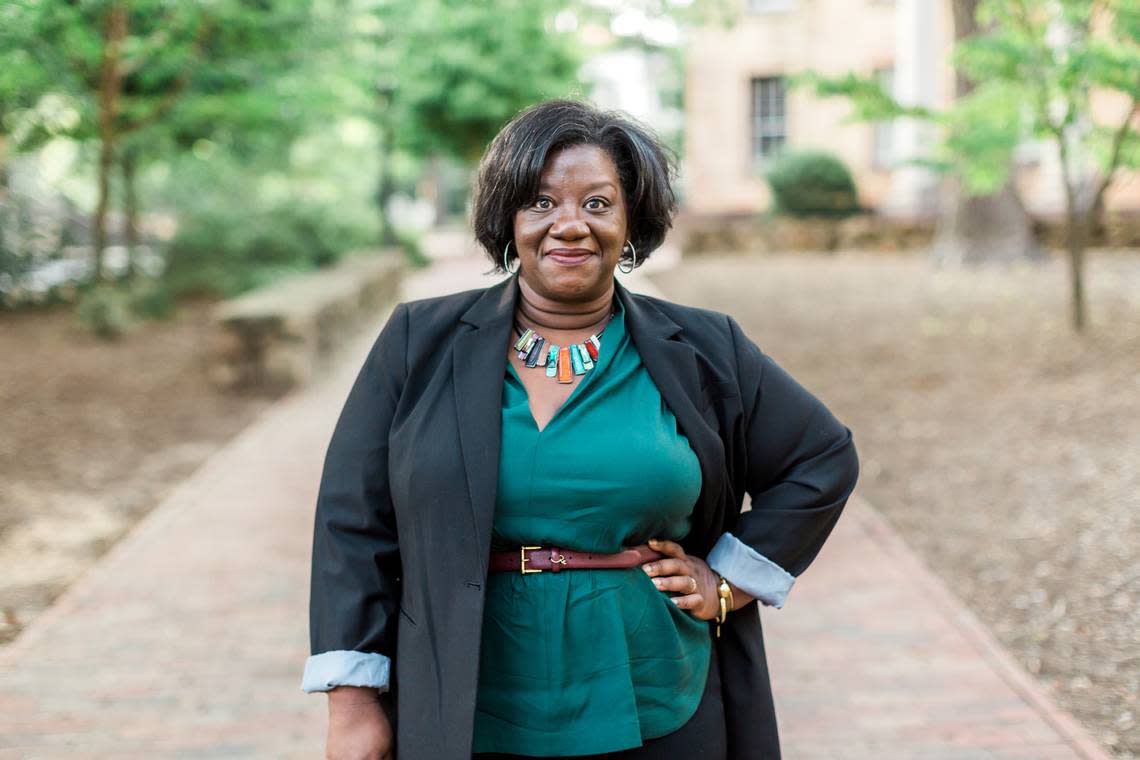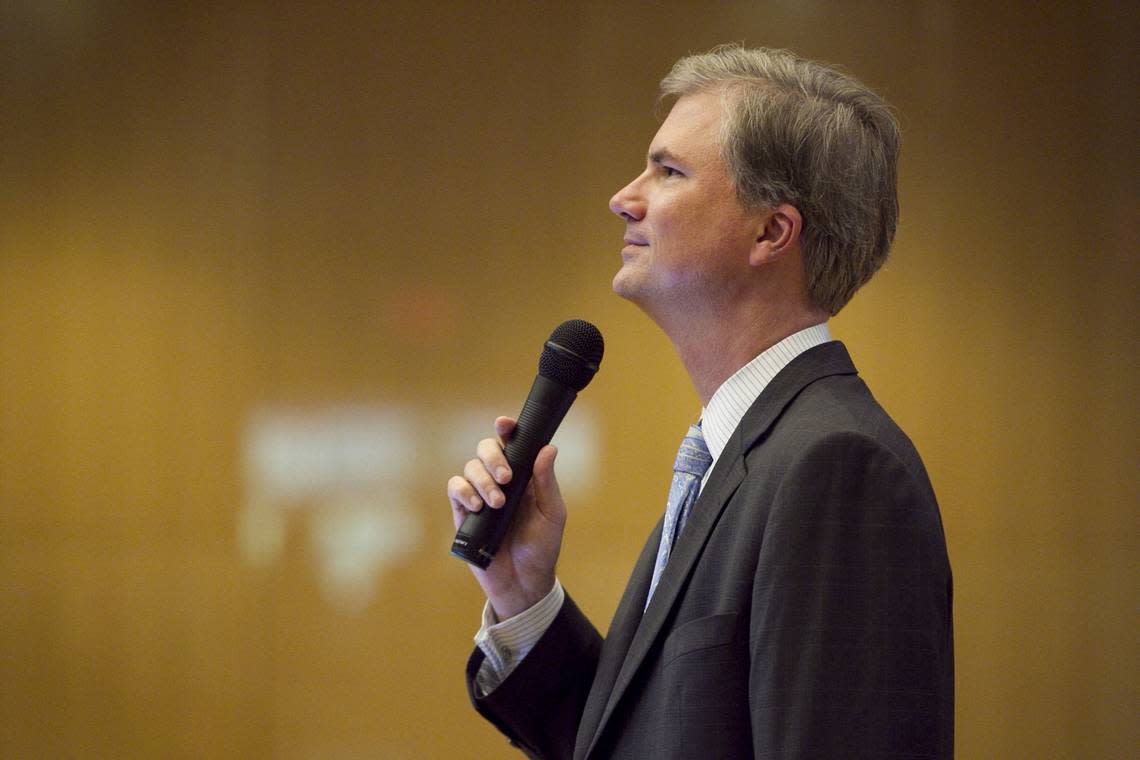UNC-Chapel Hill’s new chancellor lacks traditional academic experience, fitting a trend
The UNC Board of Governors placed a nonacademic at the helm of UNC-Chapel Hill when selecting Lee Roberts as chancellor Friday.
The decision breaks with the traditional backgrounds of previous UNC chancellors and the overall historic national trend in career paths of university leaders.
But it is in step with a recent increase in university presidents who do not come from the traditional pathway of academia.

Roberts was selected as UNC’s chancellor after serving as interim leader when former Chancellor Kevin Guskiewicz left the post in January. Roberts resigned from the UNC Board of Governors to take the job.
He is the second member of the Board of Governors to recently become a chancellor within the statewide UNC System. Neither Roberts, nor now-Fayetteville State University Chancellor Darrell Allison, had backgrounds in academia before landing their jobs.
It’s becoming more common for leaders of universities to come from a job other than the traditional tenure-track faculty position, researchers at the Virginia Commonwealth University, led by now-UNC associate professor Tressie McMillan Cottom, found.

Their 2018 paper, found that 40.5% of university presidents had never held a tenured or tenure-track-eligible position in academia, though the research doesn’t specify how often that is the case at top-tier research universities such as UNC-Chapel Hill.
In the six years since the paper was published, the preference for individuals who were not faculty members to lead universities has likely increased, Cottom said.
To Cottom, universities function more like businesses now — making candidates without traditional academic backgrounds attractive.
“There’s this belief among university boards that someone who comes through the traditional academic route will be a little too precious about the academic mission of the university and won’t be as interested in or value highly enough what their shifting priorities are — which is to generate grant money, generate profit-making ventures and to increase the financial profile of the university,” Cottom said in an interview after Roberts’ appointment.

Former UNC Chancellor Holden Thorp, now editor-in-chief of Science magazine and a professor at George Washington University, echoed Cottom’s sentiment, saying, “I think we’re seeing more of this.”
He added that much has changed since he had the top job at the university.
“I came from a tradition where almost everybody who ran universities had an academic background, and that was something that was very important,” said Thorp, who was provost of Washington University in St. Louis from 2013 to 2019 after leaving Chapel Hill.
Nontraditional pathways
The 2023 edition of the American Council on Education’s widely cited study of university presidents published every five years notes an increase in presidents who had alternative backgrounds “outside the traditional pathway.”
“There may be underutilized potential to diversify the presidency with career campus administrators and individuals from the public, business, and nonprofit sectors,” the ACE study said.
The study also states that 9% of university presidents held an immediate past position outside of higher education. That is a decrease of six percentage points from the 2017 report, which found that 15% of presidents come from outside higher education.

Top candidates for university leadership likely have better financial opportunities in the private sector right now, Cottom said.
She also noted the sometimes charged political climate surrounding university leaders. Potential candidates for such jobs may hesitate to apply when they see presidents called before a U.S. Senate or House committee. Harvard President Claudine Gay and University of Pennsylvania President Liz Magill both resigned following appearances before the House Committee on Education and the Workforce to testify about their responses to alleged incidents of antisemitism on their respective campuses in December and January.
“I suspect those two things would shape short-term interest from people outside of academia, but I think the long-term trend and long-term trajectories still mostly hold,” she said.
A changing profile not new to NC
While Roberts’ selection is unusual for UNC, Duke University had a nonacademic leader with political ties at the helm from 1970 to 1985: Terry Sanford.
A campus president credited with raising Duke’s national stature, Sanford was North Carolina’s Democratic governor from 1961 to 1965 and a member of the state Senate before that. After leaving Duke, he was elected to the U.S. Senate.
UNC System President Peter Hans emphasized Roberts’ outside perspective as an advantage when he nominated the interim to the UNC Board of Governors on Friday.
“I’m convinced those questions are best addressed right now by a set of fresh eyes, by someone with experiences and expertise that offer a wide perspective on the challenges and the opportunities ahead,” he said.
Thorp praised Roberts as an administrator with important experience in government.
“That’s a hard job,” Thorp said. “He has many of the tools you need to do it. The fact that I might disagree with him about policy on one thing or another, well, these things have been hashed out in North Carolina for the last 15 years and it’s clear where it’s going, and I think he’ll do a great job of leading the university in this environment.”






